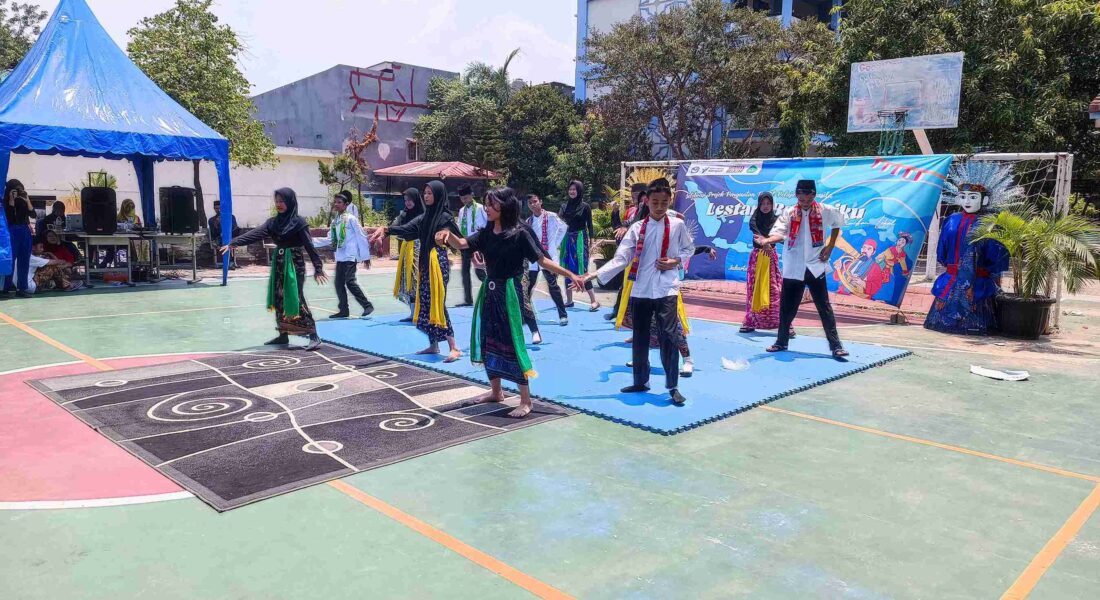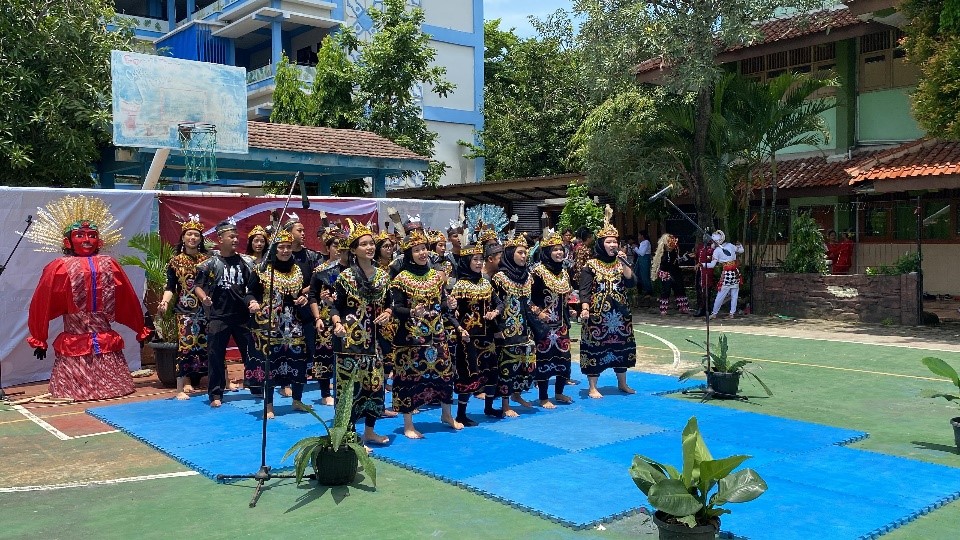
Writer: Lidiawati
Editor: Narni Mulaningsih
The Pancasila Student Profile refers to the character and abilities developed in the Pancasila Student Profile Strengthening Project, a project-based co-curricular activity designed to strengthen efforts to achieve competencies and characters in accordance with the Pancasila student profile which is compiled based on Graduate Competency Standards. There are at least six competencies (dimensions) in namely: a) Faith and fear of God Almighty and noble characters, b) Global Diversity, c) Mutual Cooperation Spirit, d) Creativity, e) Ability to be independent, and f) Critical thinking skills.
There are several themes in the Pancasila Student Profile Strengthening Project, one of them is Local Wisdom, this theme has just been implemented at SMP Negeri 136 on October, 10th 2024 with the hope that students can recognize and appreciate the local culture around them, respect various professions in society, interact with their friends, and show mutual respect for older people and peers. In addition, the implementation of the Pancasila Student Profile Strengthening Project is expected to provide an opportunity for students to “experience knowledge” as a character strengthening process, as well as an opportunity to learn from their surroundings.
This Pancasila Student Profile Strengthening Project uses a project-based learning approach that is different from project-based learning in intracurricular programs in the classroom. This lasts about 1-2 weeks and is closed by a demonstration of student project work called a celebration. This Local Wisdom theme has been implemented at SMP Negeri 136 from September 25th to October 10th, 2024. The implementation of this project was also different from grades 7, 8 and 9 where each level had its own project in carrying the theme of local wisdom: “Lestari Betawiku”. Grade 7 had the opportunity to learn about Betawi songs, Betawi dances and get to know Betawi traditional clothes, Betawi specialties and Betawi musical instruments. Where their final project was to performed Betawi Dance and sang Betawi Songs. Grade 8 had the opportunity to learn about the traditions and customs of the Betawi people, the Betawi wedding stage tradition and the Palang Pintu heritage culture, and their project was to present the Palang Pintu event of the Betawi traditional wedding. Grade 9 had the opportunity to learn about the Betawi lenong culture, and the Betawi pencak silat tradition. Their project was to present the Betawi lenong and pencak silat performances. With the division of activities that display the entire tradition of Betawi people’s lives, it is hoped that students will be able to explore aspects related to the original Betawi culture so that they are able to continue and preserve Betawi culture amidst the strong flow of foreign cultures entering Indonesia and students love Betawi traditional cultures.
During P5, students were seen to be very enthusiastic in learning and creating Betawi customs and cultural traditions. They were seen to be very enthusiastic in working together to make Kembang Kelapa, making machetes from cardboard, they made dance’s decorations to performed lenong and Betawi dance, they prepared themselves for the Lenong performance, Betawi dance, singing Betawi songs and the Palang Pintu performance, all of these preparations from students certainly showed creativity, mutual cooperation and critical thinking from students.
The peak of the P5 event was a celebration or Performance of Work on October 10th, 2024 where SMPN 136 students showed their talents as a form of preserving Betawi culture and customs. Teachers of course act as facilitators to guide students in completing projects. This celebration activity invited a positive response from the Principal, Teachers and staff, parents and students themselves. Because the P5 Celebration with the theme of Local Wisdom: “Lestari Betawiku” was not only a place to show off talents but also fosters positive impacts including: 1) Growing students’ self-confidence and motivation, 2) Improving students’ communication and presentation skills, 3) Growing cooperation and collaboration between students, teachers, and parents, 4) Growing students’ creativity and innovation, and 5) Growing a sense of love and pride in their own work.

